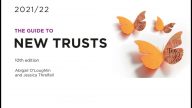How many Olympics does it take to repay £425m?
We’re on the verge of the 32nd Olympic Games of the modern era. On Friday, 23 July the postponed games from 2020 will open in Tokyo, Japan – likely to an empty stadium due to the ongoing coronavirus pandemic. It’s been five years since Rio 2016, and nine years since London 2012.
Despite all the good vibes and volunteering spirit around the London Olympic and Paralympic Games, it’s not well understood that Britain’s charities and community groups sacrificed hugely to make these events successful. And nearly a decade on, they’re still waiting for the UK Government to make good on a promise to repay a massive debt. After a year and a half of a pandemic that has ravaged charity finances and stretched vital, life-saving charitable services to the limit, it’s well past time for that debt to be repaid.
But this story really begins even further back than London 2012
In 2007 the government diverted £675m in lottery revenues from National Lottery good causes to pay for infrastructure on the Olympic Park. The proposed price tag for the Games skyrocketed after the bid was won, and the lottery kitty was raided to help build stadiums, venues, a park, and what eventually became housing redevelopments in east London. For years, there was less money available for small charities and community groups to run local projects as a result.
£425 million of this £675m chunk would otherwise have been distributed by the Big Lottery Fund (now called the National Lottery Community Fund), mostly to small charities and community groups doing crucial work across the country. The remainder was taken from other lottery good causes such as heritage and arts.
At the time, there was huge opposition from across the voluntary sector and cross-party support from MPs against the decision. In response, the then Labour government subsequently agreed a Memorandum of Understanding with the Mayor of London committing to repay these funds to the Lottery distributors after the Games, using the proceeds of assets sales on the Olympic Park. The Conservative-led Coalition Government then amended and formalised the terms of the repayment agreement under the ‘London Settlement’, which has since been publicly reaffirmed by successive Conservative governments.
So, there is a legal basis for repaying this money to communities, using the proceeds of asset sales. But when? And how? And how fast? Fifteen years ago, these seemed to be quite abstract questions, especially for politicians focussed on getting through the next news cycle. Sadly, the written agreements never stipulated a timescale, just a quite complicated process. And over time, it has become easier and easier for successive generations of politicians to see this commitment as not a priority or not really applicable to them – and we’ve had four General Elections since 2007.
What’s happened since London 2012, then?
The London Legacy Development Corporation, which is under the aegis of the Mayor of London, now owns the assets but so far few have apparently been sold off to reimburse the Lottery. Parliamentary questions in 2018 revealed that only £57m of asset sales had taken place by that point. The Olympic Stadium, the most costly asset, which has had hundreds of millions in further public investment after the Games to make it useable for football, was signed over to West Ham Football Club for a mere £2.5 million a year on a 99-year lease. So much for repaying charities with any proceeds from that asset for the next century…
Government statements over the years have stipulated that asset sales will take place over a period of decades, ‘potentially’ to be completed by 2030/31. It’s amazing to think that we’re basically halfway through this period – but have half of the assets been sold? We still just don’t know, but it seems unlikely anything approaching half has been achieved.
The devastating effects of the COVID19 pandemic are not going to go away soon, even as the percentage of people vaccinated grows, we get the virus under control, and society starts to reopen again. In the coming years we will see a plethora of social needs that have built up or exacerbated during this tragic time, across everything from mental health, the needs of children and young people, bereavement, employment, housing, poverty, domestic violence and abuse, and relationship breakdown – to name just a few.
Charities and community groups across the UK need this money to meet these needs now, not in 2030.
£425 million would enable up to 42,000 charities to improve the lives of millions of people as society hopefully starts to recover from the pandemic.
And there’s a solution that would not negatively impact the government balance sheet, if only our politicians would listen. The Treasury could pay back £675m to the Lottery distributors in full now, and in turn renegotiate the ‘London Settlement’ to take on the role of ‘creditor’ against the future sales of Olympic assets. Basically, trade cash now for a stake in assets that will repay over a longer time. Governments do similar things all the time when they issue things like bonds, for example.
Successive governments have stated their confidence that the current agreement will yield the necessary financial returns over time, so it should have confidence that the LLDC will honour its obligation to repay the amount and the repayments will take place. The net effect to the Government balance sheet would merely be transferring cash expenditure to a corresponding stake in future income yielded by the asset sales.
Making these funds available now to address urgent social needs would be hugely beneficial, potentially funding thousands of vital projects in communities across the UK. You can help us keep the pressure on government to keep their commitments and provide a Big Lottery Refund by sharing this article today!


